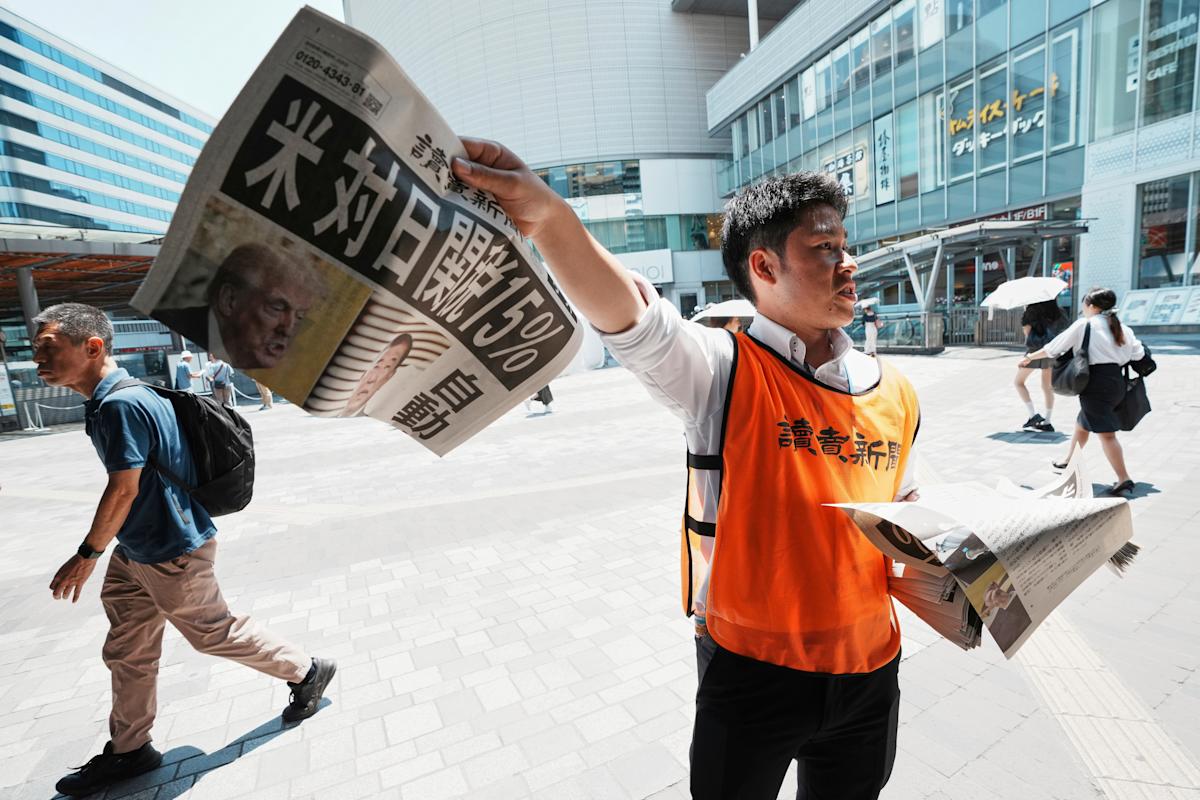WASHINGTON (AP) — President Donald Trump is bragging that Japan has given him, as part of a new trade framework, $550 billion to invest in the United States. It’s an astonishing figure, but still subject to negotiation and perhaps not the sure thing he’s portraying.
“Japan is putting up $550 billion in order to lower their tariffs a little bit,” Trump said Thursday. “They put up, as you could call it, seed money. Let’s call it seed money.”
He said 90% of any profits from the money invested would go to the U.S. even if Japan had put up the funds. “It’s not a loan or anything, it’s a signing bonus,” the Republican president said, on the trade framework that lowered his threatened tariff from 25% to 15%, including on autos.
A White House official said the terms are being negotiated and nothing has been formalized in writing. The official, who insisted on anonymity to detail the terms of the talks, suggested the goal was for the $550 billion fund to make investments at Trump’s direction.
The sum is significant: It would represent more than 10% of Japan’s entire gross domestic product. The Japan External Trade Organization estimates that direct investment into the U.S. economy topped $780 billion in 2023. It is unclear the degree to which the $550 billion could represent new investment or flow into existing investment plans.
What the trade framework announced Tuesday has achieved is a major talking point for the Trump administration.
The president has claimed to have brought trillions of dollars in new investment into the U.S., though the impact of those commitments have yet to appear in the economic data for jobs, construction spending or manufacturing output. The framework also enabled Trump to say other countries are agreeing to have their goods taxed, even if some of the cost of those taxes are ultimately passed along to U.S. consumers.
On the $550 billion, Japan’s Cabinet Office said it involves the credit facility of state-affiliated financial institutions, such as Japan Bank for International Cooperation. Further details would be decided based on the progress of the investment deals.
Japanese trade negotiator Ryosei Akazawa, upon returning to Japan, did not discuss the terms of the $550 billion investment. Akazawa said he believes a written joint statement is necessary, at least on working levels, to avoid differences. He is not thinking about a legally binding trade pact.
The U.S. apparently released its version of the deal while Japanese officials were on their return flight home.
“If we find differences of understanding, we may have to point them out and say ‘that’s not what we discussed,’” Akazawa said.
Story Continues
